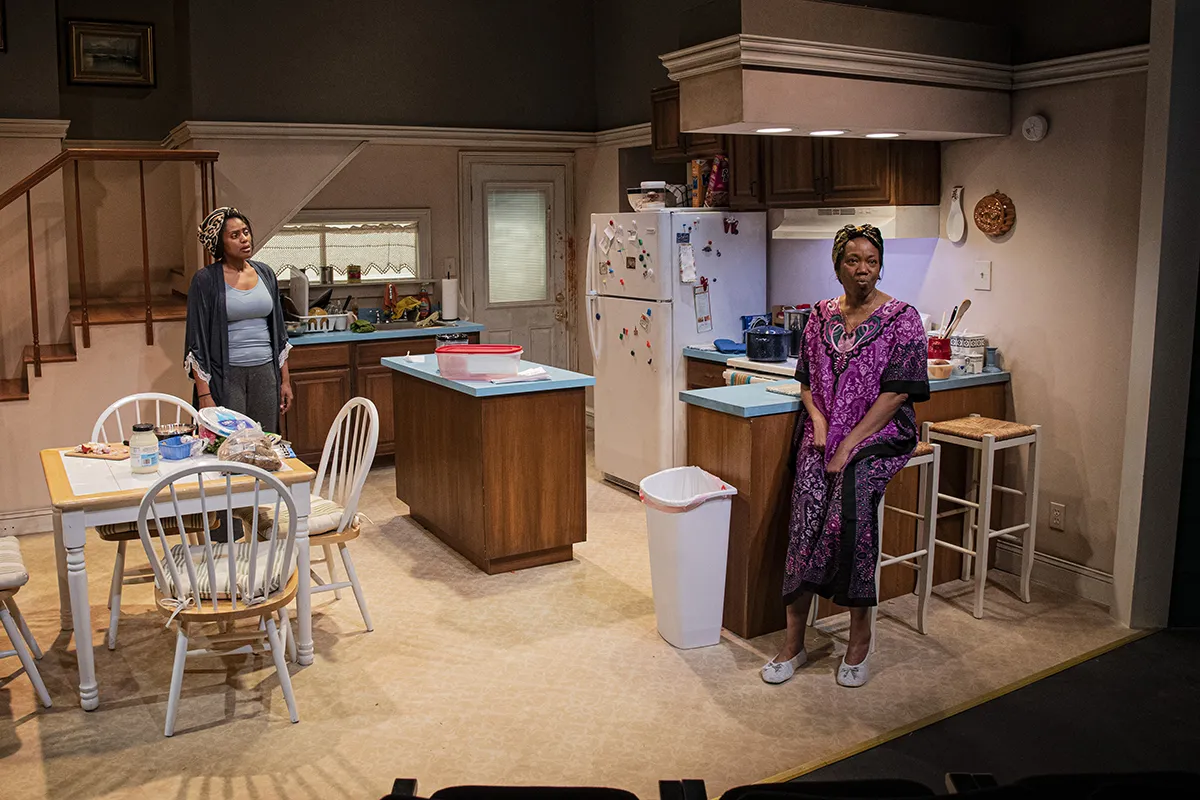In June, Lawrence E. Moten III ’12 received an Antonyo Award for Best Scenic Design for the Off-Broadway production, "STEW." The inaugural Antonyo Awards were presented by Broadway Black, which celebrates Black artists on and off Broadway. The awards were announced virtually to winners determined by a public vote. Two other IC alumni received nominations: Dharon Jones ’20 was nominated for Best Feature Actor in a Musical Broadway for his role in “West Side Story,” and Alan Edwards ’07 was nominated for Best Lighting Design for “The Hot Wing King.”
A theatrical production arts major at IC, Moten said that it was “amazing to be recognized” in the Antonyo Awards. “I love that the Antonyo Awards celebrates and showcases Black artistry. It’s meaningful to so many because it shouts out ‘we exist.’ More often than not, producers, directors, and institutions infer that they do not have Black creatives and storytellers because we are so few and far between. This award ceremony said that's not true. I think that this will create a greater demand and far more fertile ground for more Black set designers to find success in the landscape of New York City theatre.”

